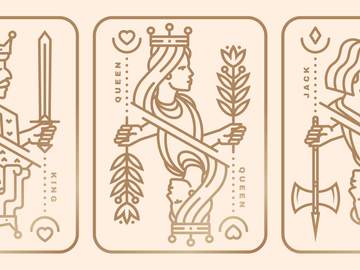
‘Beryl’
Beryl saw increased lookups this week due to Hurricane Beryl making landfall in Texas as a category 1 storm after wreaking destruction across the Caribbean.
Hurricane Beryl’s path to Texas caused destruction on parts of the Caribbean. To help clean up the debris and devastation left by Beryl, an Austin native has organized efforts to help locals on the Caribbean island of Grenada.
— Kevin Baskar, KXAN.com (Austin, Texas), 8 July 2024
Sometimes used for a person’s name, the word beryl refers to a mineral, specifically one consisting of a silicate of beryllium and aluminum of great hardness. Several varieties of beryl are valued as gemstones: aquamarine (pale blue-green); emerald (deep green); heliodor (golden yellow); and morganite (pink).
‘Preposterous’
Lookups for preposterous rose after a former adviser to former vice president Mike Pence used the word to describe efforts by presumptive Republican presidential nominee Donald Trump and his supporters to disavow a controversial right wing blueprint for governance known as “Project 2025.”
Republicans call Trump’s move to distance himself from Project 2025 ‘preposterous’
— (headline) The Guardian, 8 July 2024
We define preposterous as “contrary to nature, reason, or common sense,” and as a synonym for absurd. Preposterous comes from the Latin word praeposterus, which translates literally to “in the wrong order,” and shares etymological lineage with both posterity, meaning “all future generations,” and posterior, meaning “buttocks.”
‘Front’
Following national elections in France, the word front saw more lookups than usual.
Even as vote counting was still underway across France on Sunday night, one thing was clear: The left-wing coalition called the New Popular Front did much better than expected and helped deny the far right a victory. Projections show the coalition coming out in front and gaining dozens of seats — a feat for an alliance that was forged only last month with the goal of keeping the far-right National Rally from power.
— Catherine Porter, The New York Times, 7 July 2024
Front comes from the Anglo-French word frunt or front, which in turn comes from the Latin front- or frons. It has been used as a noun since the 13th century, and today is also used as both verb and adjective. The relevant sense invoked by the French elections is “a movement linking divergent elements to achieve common objectives,” which is used especially to refer to a political coalition. France’s New Popular Front, for example, represents an alliance of four left-wing parties.
‘Dad bod’
Curiosity about dad bod drove an increase in lookups for the term following news suggesting that dad bods are a product of human evolution.
What if evolution led us to the “dad bod”? In humans’ evolutionary past, a drop in testosterone may have helped men adjust to and increase their involvement in their children’s lives, says Lee Gettler, an anthropologist who has studied the science of men’s changing bodies. But lower testosterone can also drive a softer, less toned, paunchier physique, a.k.a. a dad bod.
— Ian McMahan, The Washington Post, 9 July 2024
We define a dad bod as “a physique regarded as typical of an average father,” especially one that is slightly overweight and not extremely muscular. The first-known use of dad bod in printed English occurred in 2003, and the term was added to our pages in 2021, alongside fluffernutter, air fryer, and chicharron, all of which is a total coincidence.
Word Worth Knowing: ‘Crapette’
Were you to use it as an insult, crapette would be both self-explanatory and, we imagine, fairly mild—a term of endearment for a beloved yet incontinent dog, perhaps (with the suffix -ette meaning “little one,” as in kitchenette). Instead crapette (from the French crapette, of the same meaning) is a lesser-known name for a two-person card game that goes by many others, including “Russian Bank,” “Cat and Mouse,” “Hate and Malice,” and “Spite and Malice.”
“Let’s play a game of crapette,” he suggested. “We haven’t done that in a long time.” From the dresser he took two decks of cards and started to lay them out.
—Margaretha Shemin, The Empty Moat, 1969




